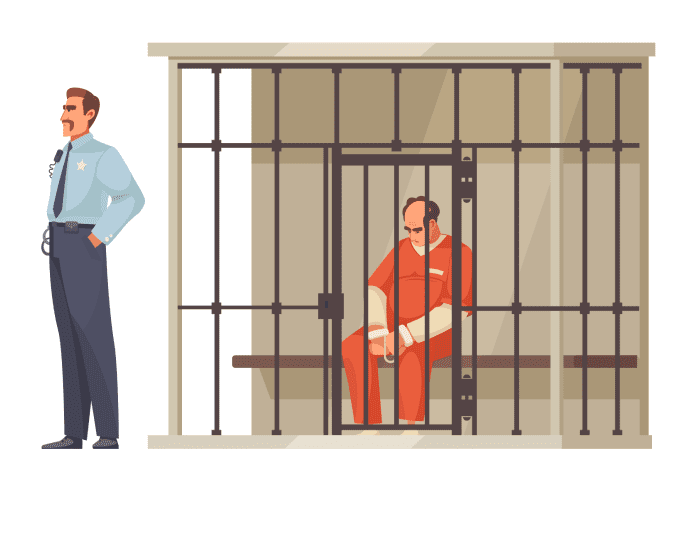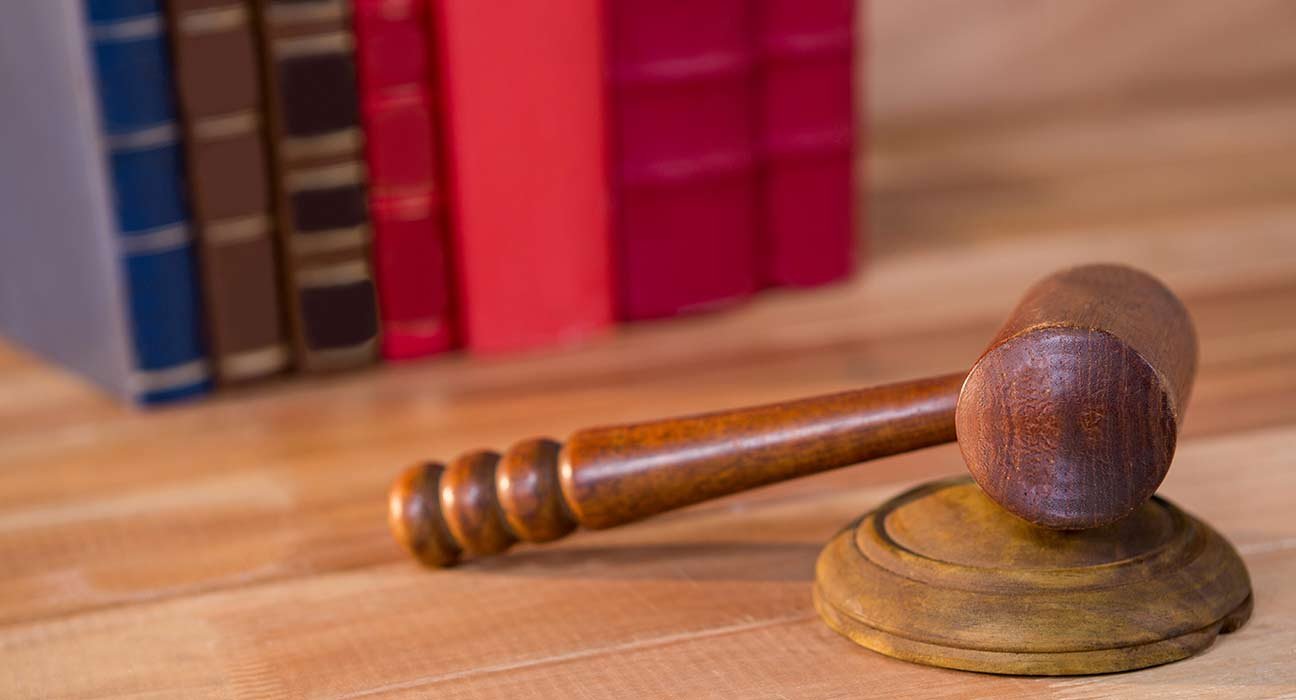The creation of false memories and altered memory representations have been a topic of considerable interest in psychology, to understand the fickle nature of memory and under what conditions does our memory change itself? Such information about the changes in memory is vital for criminal psychology, especially in court trials wherein eyewitness testimony is needed to make or break a criminal case. One may argue that science tells us not to place eyewitness testimonies in such high regard after the advent of DNA testing to help trace the crime back to the criminal.
Related: Forensic Psychology vs Criminal Psychology
However, in most countries, eyewitness testimonies are still a top priority in the chain of evidence to piece together the events that unfolded at a crime scene. One such example, among countless others, was of a convicted rapist in America in 1984, who had 5 eyewitnesses testify against him, only to have him proven innocent through DNA testing after spending 8 years in prison. Concerning the eyewitness testimony study by psychologists Loftus and Palmer, we hope to shed some light on the questionable nature of trusting a person’s reconstructive memory when deciding the fate of another, and how this psychological study was able to provide substantial evidence that goes against eyewitness testimonies.
Related: The Psychology Behind the Chilling Case of Jeffery Dahmer
Explaining The Study
The research is based on Barlett’s schema theory, which suggests that memories can be influenced by the previous knowledge of a person. The psychological study we want to reference here is Loftus and Palmer’s (1974) study on eyewitness testimony which aimed to investigate how memory can be influenced by post-event information. Their study consisted of two laboratory experiments. The psychologists asked the participants to estimate the speed of cars using different types of questions. Guessing the speed of a car is something people usually struggle with, hence they may be more open to suggestions.

Hence, the independent variable was the wording of the question and the dependent variable was the speed reported by the participants. The speed estimate by the participants was affected by the verb used by the researchers to describe the event. The verb suggested information about the speed which affected the participants’ memory of the incident.
In the experiment, two groups of 150 students were shown a one-minute film that featured a car driving followed by four seconds of a multiple-traffic accident. 50 students were asked ‘How fast was the car going when they hit each other?’, and another 50 ‘How fast was the car going when they smashed each other.’ They were asked after a week of watching the original car accident video if they saw any broken glass in it. It was found that Participants who were asked how fast the cars were going when they ‘smashed’ were more likely to report seeing broken glass. Therefore the research suggests that memory is easily distorted by questioning techniques and information acquired after the event can merge with the original memory causing inaccurate recall or reconstructive memory.
Criminality Context
Our memories are not like a video reel being played back to us when prompted, but rather a dynamic and everchanging source of information that is heavily biased through our schemas and the stimulus that prompts us to remember something.
Read more: 6 Reasons People Make False Accusations and How to Deal with it
The famous “lost in the mall” study which was also conducted by Elizabeth Loftus helped us visualise how powerful the power of suggestion truly is which could give birth to entirely false memories. Since Loftus suggested to the participants that 1 out of the 4 childhood traumatic events have occurred in the participant’s life, the participant claimed to have experienced being “lost in a mall” when in reality such an event had never occurred in their childhood.
Putting this information in the context of criminality, the study by Loftus and Palmer shows us how a leading question in court or even by a police officer after a crime or mishappening has occurred, can perhaps almost permanently alter that event’s memory once the perception has been framed due to the biased questioning. The Supreme Court of India has shed little light upon the possible biases in eyewitness testimony, saying that if the witness is of “sound mind” then there is no reason to “magnify theoretical possibilities”.
Read more: How PTSD Impacts the Survivors of a Crime?
However time and again we have seen wrongfully convicted people who have had 1-2 eyewitness identifications, seemingly enough to put them in prison according to Indian law. While one may argue that psychology has little to do with criminality and law, both these topics of concern have one thing in common; they deal with the nature of people. The nature and psyche of an individual can be studied through psychology to understand the nuances of memory, schemas, perceptions and more when dealing with the criminal fate of another.
The Fickle Nature Of Memory
Therefore it is needless to say that our memories may not be as reliable as we think. Once we experience an event and record it in memory, it doesn’t just stick there in some pristine form but rather, new information, new ideas, new thoughts, suggestive information, and misinformation can enter people’s conscious awareness and cause contamination, distortion, and alteration in memory. They can be manipulated when people talk to each other after, let’s say in a situation where they have witnessed a crime.
Read more: The Psychology Behind Manipulation
Memories can also be influenced when one is interrogated by an investigator who may have an agenda or a hypothesis about what probably happened and communicates that to the witness even inadvertently. People can be manipulated when they see media coverage about an event, let’s say it’s a high-publicity event that is talked about a lot on television or in newspapers. In all of these cases, the opportunity is there for new information, not necessarily accurate information, to contaminate a person’s memory. This may lead to members of the legal system getting inaccurate and incomplete information from people who are involved in legal cases and ending up convicting people of crimes they did not commit.
Read more; The Psychology of Corruption
In conclusion, the persistent problem with eyewitness testimonies may have little to do with law and order and more with how far we are willing to trust human psychology and human nature when deciding the fate of another individual. When memory can be reconstructed, events can be recalled differently each time, and the creation of false memories is a possibility, why would any legal system put eyewitness testimonies at such a high priority in the chain of evidence? We explored a few possible solutions to this problem.
Standardised written questions for each eyewitness, after a recent crime or mishap has occurred, could help reduce a large amount of human bias at the very start. When a witness goes to the police to report a crime or if a witness is contacted to reveal information, a standardised set of questions on a piece of paper will help the individual focus their thinking on only recalling the event.
If the questions that the person will be asked are standard “What was the event that you witnessed” or “Who were the people involved” then there will be little room for memory bias based on the firsthand questioning a witness will receive, which is a very reliable alternative to questions like “Was the criminal of north Indian origin?” or “Did the criminal seem young to you in age?” since these questions are being asked with a motive in mind.
Read More: Human Psychology Theories on Personality Development
Another method of standardizing the testimonial procedure could be to videotape all testimonies. This will help lower the chances of eyewitness back and forth and reduce the constant changes to the chain of events after multiple recalls. As the study mentioned above explains, the more the number of recalls the more possibility of error. Hence it will be helpful to videotape the first testimonial. These changes, along with a greater sense of awareness regarding human psychology and the nature of memory, may perhaps bring much-needed reforms to our handicap when it comes to eyewitness testimonials.













Leave feedback about this